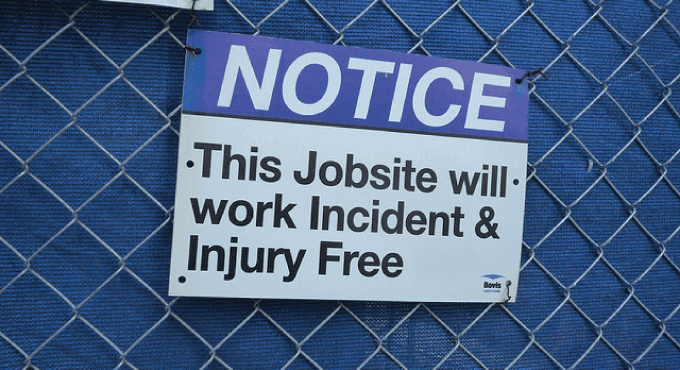
When Can You Blame Nature for a Mistake?
The weather just can't catch a break. People are always complaining about it and blaming it for things, when they really should look to their own actions to find the real culprit. You have to admit, it can be humourous when people blame weather for their errors… unless of course you're the one paying the bill for damage.
The fact is, weather does not cause incidents – people do! Unless your worksite has been affected by tornados or tsunamis, the cause of weather-related damage can almost always be traced back to human error, even when weather conditions are listed as the official cause.
Take people getting in car accidents while driving in the rain or snow, for example. Sure, slippery roads do make it more difficult to drive a car, but are the drivers proceeding with extra caution or maybe even deciding not to drive that day? That’s where the human factor comes in. This kind of second thought is especially important when you're a manager responsible for the safety of others in the workplace.
By learning from other people's errors and paying attention to situations where accidents are known to happen, you can take control of the situation and prepare adequately for Mother Nature's wrath. Here are some key questions to ask yourself so you can prevent these issues from happening.
Are the Same Incidents Happening Over and Over Again?
At a recent conference, a Director of Safety was holding nine different incident forms where heat had been named as the cause of employee injury on the job. He was very angry and he wanted his safety consultant to fix the problem immediately. Did he realize that the incidents could have been prevented through proper hydration, appropriate breaks and strategic working arrangements? Maybe he was in denial. Blaming the heat is an easy out, but it's also not going to fix or prevent any future incidents. What this Director could do, however, is learn from this recurring issue and take steps to protect his employees in the future.
Are You Preparing Adequately for Incoming Extreme Weather?
In another recent case, high winds were blamed for a construction incident where three workers were injured and equipment was damaged by falling steel joists and columns. The president of the construction company was quoted in the media saying “Mother Nature had a hand in this.” The company admitted that they had taken precautions and suspended some of the work in preparation for the wind storm, but clearly their efforts were not enough. The columns in question had only been secured with temporary bracing. Needless to say, the federal Occupational Safety and Health Administration pursued investigation.
The Bottom Line: Safety Should Always Come First!
Have you noticed patterns of incidents that appear to be related to natural phenomenon? Could you take steps to prevent or mitigate these effects? Do you know that extreme weather is on its way?
While taking proper precautions to address these concerns might seem time consuming and costly, the effects of not doing so can be much more detrimental to your bottom line.










